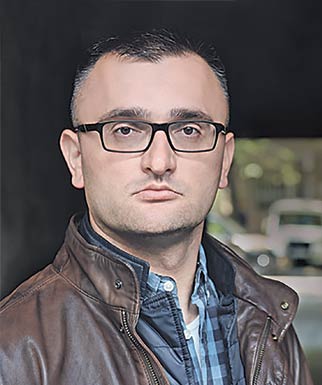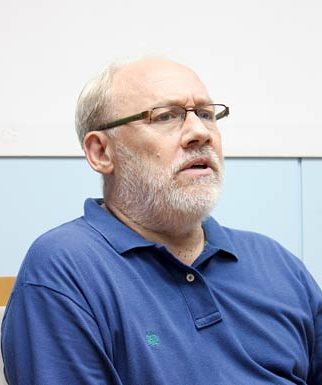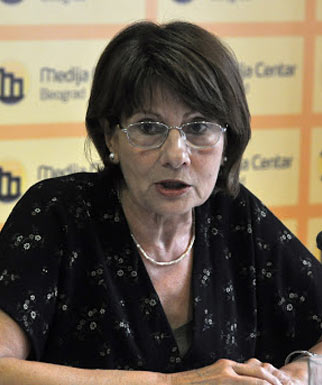Although it already appeared certain that the ruling party would secure a convincing victory in the upcoming parliamentary and local elections even before the outbreak of the pandemic and the imposing of a state of emergency, the reasons for that are now different, given that new political topics have emerged – the securing of health and the revoking of certain political freedoms, to which the opposition has (yet) to prepare a response
How Will the New Circumstances That Have Arisen (Covid-19) Impact On the Outcome of Parliamentary and Local Elections In Serbia?
If it occurs that citizens of Serbia are called upon to vote in parliamentary and local elections almost immediately after the lifting of the current state of emergency, this will not be news on a global scale, because in many countries election campaigns – and even voting itself – is taking place during a pandemic or at its (immediate) end.
A consensus exists among the experts interviewed by CorD that the ruling party will emerge even stronger than it was. However, there is no agreement as to whether its (expected) convincing supremacy in parliament will result in an even further narrowing of the space for democratic action, or whether it will cause (insufficiently politically articulated) protests.

Bojan Klačar
Executive Director of the Centre for Free Elections and Democracy (CESID)
Different Agenda, Expected Outcome
The political capital of the ruling party as a whole will be assessed through the success of the fight against COVID-19. If there are no major failures, a good election result for SNS is expected. This is especially so since such crises significantly narrow the opposition’s room for manoeuvre
Chroniclers have calculated that at least 47 countries have decided to postpone elections since early March. Serbia is also among them, having halted the election process and decide to resume elections immediately after the lifting of the state of emergency. This means that (unless there is a change) elections will be held on the 41st day after the decision to end the state of emergency. How, then, will the impact of the new circumstances on the electoral process?
We will already see the first changes in the campaign: we will witness a completely different political agenda compared to that from the start of the year. All the topics that were on the table at the beginning of March have been “swept away” by the pandemic and that table is again empty. The priorities of citizens will be different, they will be interested in some other topics, they will have different worries, expectations and fears. And they will seek different answers.
We will witness a completely different political agenda compared to that from the start of the year… The pandemic has swept away all previous topics and the table is again empty
The outcome of elections will depend on two things. The first is the success(or failure) in managing the crisis, citizens have more solidarity and more willing to come together ‘under state interests’, as well as the small gap between the end of the state of emergency and the holding of elections. Even outside Serbia, the approval ratings of European leaders (Kurz, Merkel, Rutte, Macron) show that the crisis has not weakened them, but strengthened them, and even those who lead the countries most heavily hit by Covid-19 (Such as Italian PM Conte, who has a rating of 71%).
The second thing that determines the outcome of elections is the opposition’s reaction after the state of emergency, or the opposition’s ability to recognise citizens’ expectations, to devise an agenda based on them, and to find topics and measures that critique the ruling party. This will not be easy, because such crises significantly narrow the oppositions room to manoeuvre and take action. Simultaneously, low motivation among opposition voters can be challenging for the entire outcome of elections, as it can reduce political competition and voter turnout, but also lead to an unrepresentative parliament. Also influencing the outcome of elections is a possible change in the decision to boycott because in such circumstances it is questionable how much a boycott can cast doubt over the legitimacy of the future government.
Finally, such a crisis is also a good opportunity for Serbian society to reconsider, seek and find a “new social contract”: to restore confidence, recognise the importance of years of devalued professions and foster dialogue between political stakeholders. This is the news that citizens are waiting.
 Dragomir Anđelković
Dragomir Anđelković
Political Analyst, CRMS Executive Director
SNS Victory Certain, Legitimacy (Possibly) Questionable
With the pandemic, the space for the profitable elective functioning of governing structures has become even larger than it was. The worst that can happen to them is for them to win convincingly in conditions of a relatively low turnout
The outcome of the election will be formally the same as if there hadn’t been a state of emergency. They will be won by Vučić with his block. However, post-election processes that depend on whether the ruling party succeeds in picking up the fruits of election results cannot be ruled out as being significantly different than if there had been no Covid-19.
The state of emergency provides a drastic benefit to the ruling structures. Their scope for profitable election action is even greater than it was, while the hands of the opposition – particularly the part that opted for a boycott – are all but tied, although even here there is a strong desire to instrumentalise the circumstances politically. Setting off from its own positive results and striving to avoid the coming wave of economic and other negative consequences, the government will decide on the date at which to lift the state of emergency and hold elections. The worst thing that can happen to them is for them to win convincingly in conditions of a relatively low turnout.
In the “Age of Corona”, certain changes have emerged in the configuration of the electorate. Among many supporters of the government, there is even greater adoration of Vučić. However, these people are with him anyway.
Although the hands of the opposition have been all but tied during the pandemic, the question is whether they will recognise the moment when it is realistic for part of the citizenry to move from a passive state to engage actively in protests.
There is no doubt that part of the active opposition-minded voters (those who, as a rule, go to the polls to vote against the government, even if they have now opted for a boycott) and those who are passively orientated (they oppose the government in principle but are not satisfied with the opposition on offer, so often do not head to the voting booths) – basically support the so-called anti-epidemic course set by the establishment. However, it is unlikely that this will change their stance in his favour.
From the model of communication of the top of the government with the public to the assessments of certain measures (rarely does at least something there not disgust someone), much of this also generates dissatisfaction among the noted category of voters. It immediately became an additional opposition driver among those who weren’t aligned with the government and who aren’t now too afraid of the Coronavirus. It is realistic to expect the transition from a state of passive opposition to an active one among a not so small segment of the citizens in this category, as well as the radicalising of those who already were.
That said, given the pre-existing form and timing, it will not be projected significantly on the outcome of the upcoming elections, but it is realistic to act as an additional powder charge for protests and other forms of opposition action that are likely to follow afterwards. If many do not yet see who they are in favour of, it is becoming clearer to them who they perceive as the problem. Whether the upcoming victory of the governing party will turn out to be pyrrhic depends on the (in)ability of the existing opposition to take advantage of that clarity and the (un)willingness of new factors to venture into opposition waters!
 Duško Radosavljević Ph.d.
Duško Radosavljević Ph.d.
Political Scientist
New, Even Worse Political Primitivism
We are deeply convinced that many forms of behaviour and restrictions from the so-called “state of emergency” will legitimately flow into a state of normality, in which there will again be an escalation of political and all other forms of primitivism
The so-called “state of emergency”, which at the time of writing still continues in Serbia, has consciously deadened many political activities, especially those of opposition parties, civil society and independent intellectuals and experts. Some would say that the ruling coalition also isn’t visible now, but that is just an illusion. As the most active political factor of the government, and its undisputed highest political authority, SNS president Aleksandar Vučić, is more present in the media and on the public scene, even more than in the time of “normality”. This is so obvious that a question arises as to which branch of government in Serbia, other than the president, is still functioning? Justifying this fact of (evident) contagion and concern for the people seems at first glance reasonable, justified and humane until we look at the situation in the region and see that political life there, if not flourishing, is regulated it at a fairly solid level. So, contagion is a fact, but the fact is that there exists – and must exist – both public and political life, with indications of the restoration of normality in other segments of life.
We are awaited by further pressure on oppositional ways of thinking (parties, civil society, experts), as well as any alternative to this kind of embedded regime-based policies.
We mention this because we are deeply convinced that many forms of behaviour and restrictions, from the so-called “state of emergency”, will legitimately flow into the state of normality, which will – as a consequence of the current state of affairs – also be a so-called “normal state”. In it, there will again be an escalation of political and any other primitivism, using material and other resources of government, at all levels of political organisation, with the aim of gaining as many mandates as possible in the assemblies of political communities. The same will be used to carry out the same or similar policies, which have been present in continuity for the past eight years, with all the characteristics of neo-liberalism, interspersed with our own specificities, primarily of the brotherly, party-affiliation and “back-scratching” type of interest. This means all sorts of eliminations of oppositional ways of thinking (parties, civil society, expert), as well as any alternative to this kind of embedded regime-based policies.
To conclude, all circumstances in which the level of human and civil rights in Serbia are being reduced, not only now, will always correspond to options and regimes that do not have trust in citizens, because such regimes only see their ways of being and ruling in restricting those rights.
 Jelica Minić
Jelica Minić
President of the European Movement in Serbia
Democracy Also Perished With The Pandemic
The state of emergency has been used for the pre-election campaign of the biggest ruling party in Serbia, which is a trend that can also be observed in many countries where elections are set to be held in the near future
The Covid-19 pandemic did not have a stimulating impact on democratic processes around the world. On the contrary. In most countries, the government have brought the decision to limit many citizens’ freedoms, in order to save many lives, as well as health systems that would not be able to handle the impact of an unfettered spread of infection. And it’s precisely there that differences arise.
In places where institutions had sufficient strength, and the rule of law was deeply embedded, the government had to establish a relationship of trust with the citizens, and exercise the necessary (self) discipline that was required by the introduction of the quarantine. Citizens are persuaded, requested, receive extensive reports, not discriminated against, widely informed via the media. Even the U.S. president didn’t succeed in imposing centralised and uniform management of the crisis on American states. This was not the case with the (effective) Chinese model of fighting against contagion, which was adopted by Serbia, and which to a large extent reflects the characteristics of the societies in which it was implemented.
In the time of combatting the pandemic, there is not much room for debate. Such undemocratic practises may strengthen as long as the virus threatens
In times of great crisis, a state is expected to protect its population and measures must be commensurate with the problems needing to be resolved. Then there is usually neither space nor time for major debates. However, around the world, and especially in Europe, there is increasing fear that the matrix of social life imposed by the pandemic could be extended in some countries in a modified manner, through undemocratic practices. Particularly under fire from criticism, due to his authoritarian rule, is Hungarian Prime Minister Orban, whose government has been empowered by parliament to administer decrees, suspend some laws and restrict the right to freedom of information. For the same reasons, European officials and parliamentarians are also criticising Serbia’s leading figures, with the Serbian parliament having not even been consulted on the introduction of the state of emergency and the further restricting of media freedoms.
Experts believe that the threat of Covid-19 will persist, with more flexible measures to counter it and with the expectation that the epidemic will recur. Under such conditions, under a regime of total citizen control that may only be alleviated, nothing good can be expected of the upcoming elections in Serbia, unless they are postponed for many months. The state of emergency has also been utilised the entire time for the pre-election campaign of the largest ruling party – the Serbian Progressive Party (SNS) and its president. This political instrumentalising of the epidemic, admittedly, can also be seen in the United States and France, and more or less everywhere where elections are due in the near future. However, in places where electoral conditions are beyond question, citizens will still have space to freely choose between more freedom and democracy or populist and authoritarian rule. In places where there is no social agreement around electoral conditions, such as in Serbia, one can only expect deeper and more irreconcilable divisions to emerge within society.
